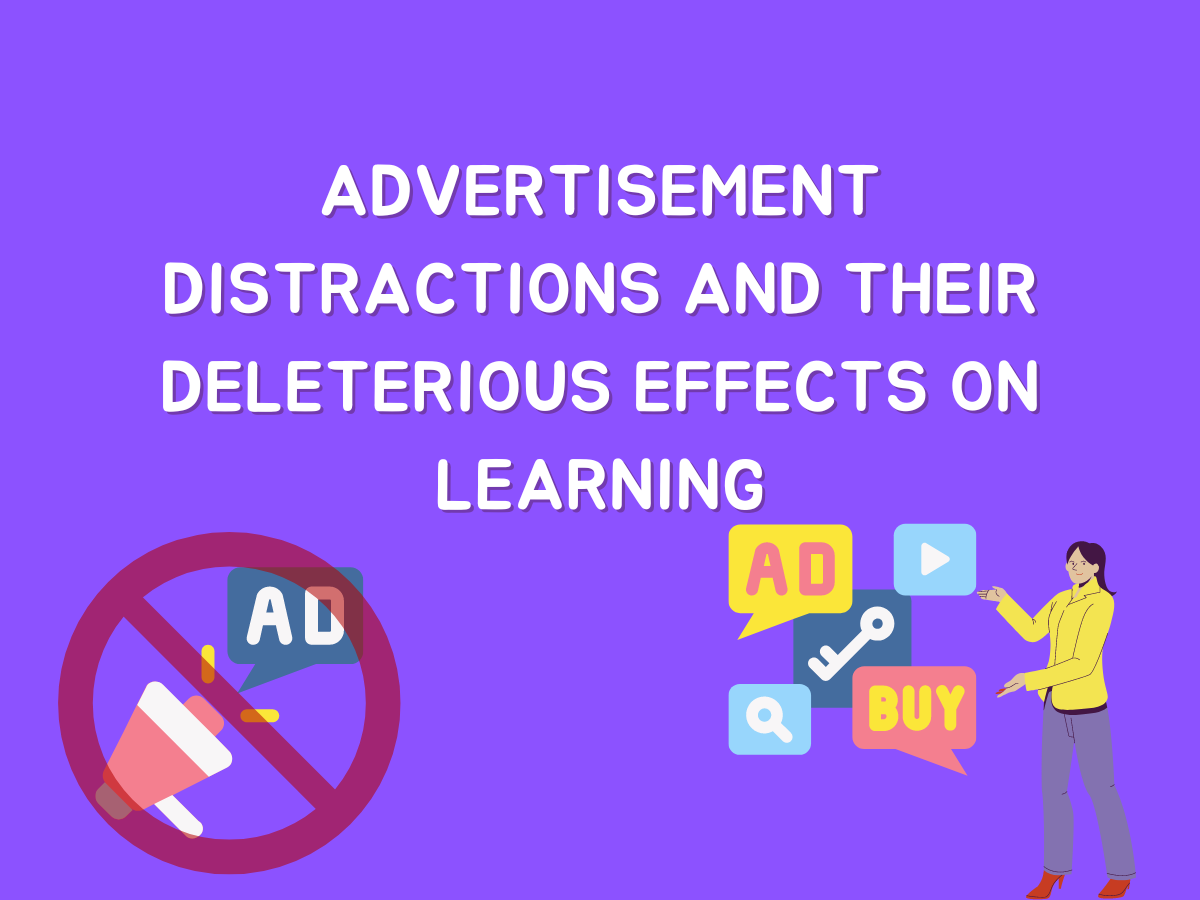Advertisement distractions and their deleterious effects on learning
By~ Scholar Planet
Created At: 07 May, 2023

In today's fast-paced world,
advertisements are ubiquitous and they can be found everywhere, from billboards
on highways to commercials on television and online platforms. While
advertisements are essential for businesses to promote their products or services,
they can be a significant source of distraction for learners. In this article,
we will discuss the deleterious effects of advertisement distractions on
learning.
1. Reduced attention span: Advertisements are designed to grab
attention but they can also have the unintended consequence of reducing
attention span. Learners may become distracted by the advertisements and lose
focus on the learning material. This can result in decreased comprehension and
retention of the material.
2. Interference with memory consolidation: When learners are exposed
to advertisements, their working memory is occupied with processing the
information from the ads. This can interfere with memory consolidation, which
is the process of transferring information from short-term memory to long-term
memory. If the working memory is busy with processing ads, there is less
capacity to process and retain the learning material.
3. Diminished critical thinking: Advertisements often use persuasive
techniques to influence the viewer's behavior. When learners are exposed to
such ads, their critical thinking skills may be diminished and they may be more
likely to accept the message presented in the advertisement without questioning
it. This can be detrimental to learning.
4. Increased stress and anxiety: Ads can also create stress and
anxiety in learners, especially if the ads are related to topics that are
sensitive or triggering. When learners experience stress or anxiety, they may
find it more challenging to concentrate on the learning material and hence,
their performance may suffer.
So, what can be done to minimize
the negative effects of advertisement distractions on learning? Here are a few
strategies:
1. Ad-blockers: Learners can use ad-blockers to block advertisements
from appearing on websites or streaming services. This can help reduce the
number of distractions and allow for a more focused learning experience.
2. Scheduled breaks: Learners can schedule regular breaks during study
sessions. This can help reduce the temptation to check phones or engage in
other distractions during learning time.
3. Mindfulness techniques: Mindfulness techniques such as deep
breathing or meditation can help learners reduce stress and anxiety, making it
easier for them to focus on the learning material.
4. Using ad-free apps: Apps like Scholar Planet are totally ad-free
and only focusses on overall learning and development.
In conclusion, advertisement
distractions can have a deleterious effect on learning, reducing attention
span, interfering with memory consolidation, diminishing critical thinking, and
increasing stress and anxiety. Learners can use strategies such as ad-blockers,
scheduled breaks, mindfulness techniques, and using ad-free apps to minimize
these negative effects and enhance their learning experience.
For an ad-free experience,
download the app now:
